Hammond's 'no separate Scottish EU deal' is disappointing, says Sturgeon
- Published
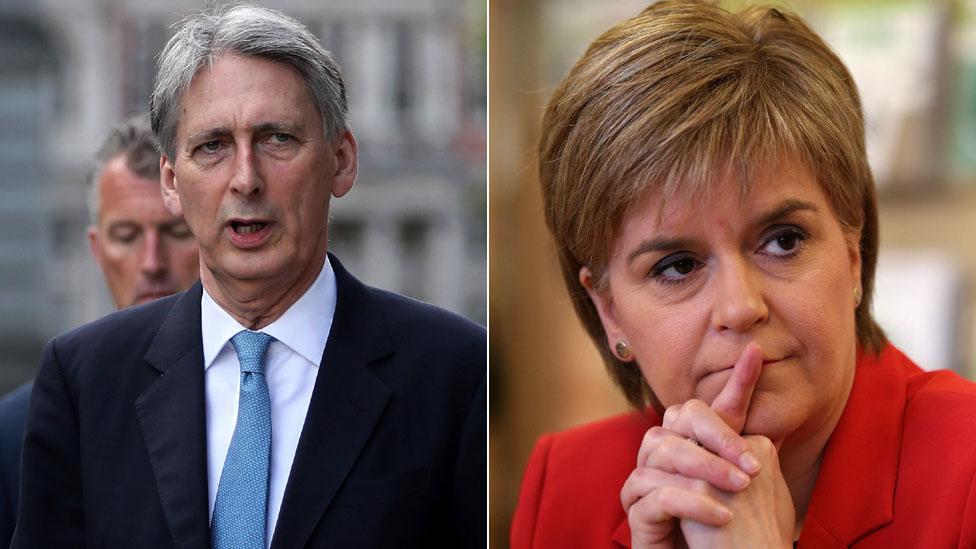
Philip Hammond's comments were called "disappointing" by Nicola Sturgeon
New chancellor Philip Hammond has said he cannot envisage a scenario where Scotland has a different relationship with the EU from the rest of the UK.
Speaking to BBC Scotland's Good Morning Scotland programme, Mr Hammond said the best place for Scotland was within the UK economy outside the European Union.
First Minister Nicola Sturgeon called the remarks "deeply disappointing".
At last month's referendum people in Scotland voted by 62% to 38% for Britain to retain membership of the EU.
Ms Sturgeon said: "I have been absolutely clear on this issue - the people of Scotland voted decisively to stay part of the European Union and their wishes must be respected.
"That includes respect from the UK government, which is why Philip Hammond's comments are deeply disappointing - I very much hope the new prime minister will be more open to constructive discussion."
However, Mr Hammond, who replaces George Osborne as chancellor in Theresa May's new Cabinet, said: "I think that the best future for Scotland is inside the United Kingdom economy.
"Let's make this United Kingdom economy work for all of us and let's negotiate with the European Union from outside the European Union a relationship which works for Britain and works for Europe so that we can have as close a relationship in trade and commerce as we possibly can, while being outside the European Union as the British people determined we should be."
Mr Hammond denied his stance meant the vote to Remain within the EU by the majority of people in Scotland was irrelevant.
He said: "It means that however we voted, we are part of the United Kingdom and we have democratic decisions made across the United Kingdom and we will now implement the decision that the people of the United Kingdom collectively have made to leave the European Union."
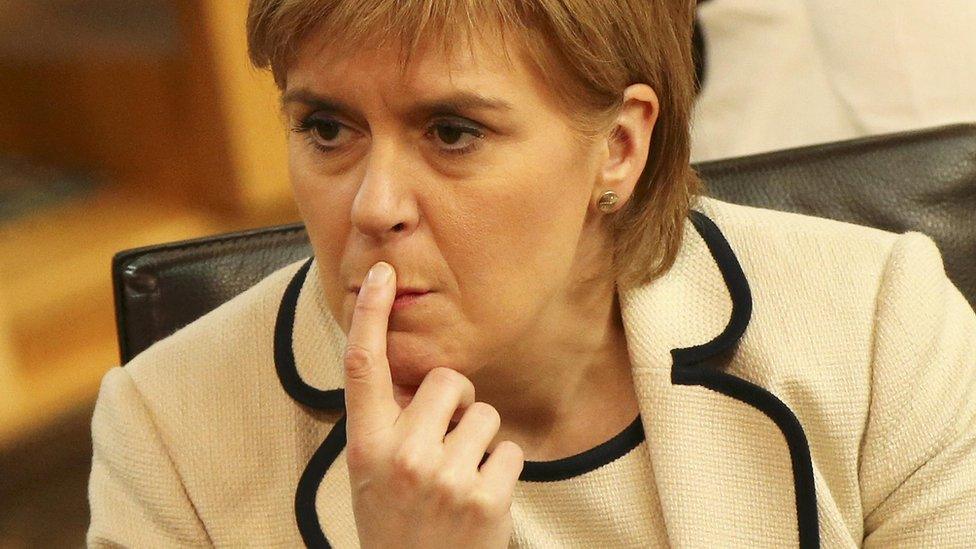
Nicola Sturgeon says she must ensure that "all options" are on the table ahead of Brexit negotiations
The chancellor also dismissed the idea that Scotland would have a separate relationship with the European Single Market. He added: "We want to have access to the single market.
"We want British companies to be able to go on selling their goods and services into the single market, as they have done before, and that applies to Scottish businesses as much as it applies to English, Welsh or Northern Irish businesses."
Mr Hammond insisted that the Barnett formula, used to determine the amount of funding that goes to Scotland and other parts of the UK, would stay in place.
"There are no plans to change the Barnett formula," he said. "The Barnett formula works, it's an arrangement that works well, it has worked well for many years. Like many things in our constitutional arrangements it has worked rather well, it's a pragmatic solution and there are no plans to change it."
Ms Sturgeon pledged to do all she could to ensure Scotland remained in the EU despite the UK as a whole voting for Brexit in the referendum.

Analysis by Nick Eardley, BBC Scotland Westminster correspondent
The new-look UK government is still being formed. It has yet to decide its complete official policy on Scotland.
The new chancellor ruling out changes to the Barnett Formula is important. It shows the UK government has no desire to return to the issue of funding any time soon.
But Mr Hammond's comments on Europe illustrate some of the challenges ahead. He's said he can't see - at least at the moment - Scotland having a separate deal with the EU than the rest of the UK.
That's slightly different from the Scottish Secretary David Mundell, who told me he'd be open to a different deal if possible.
Both will be among figures around the Cabinet table who have influence over such things. David Davis, the minister for Brexit, will be another key player.
Nothing is set in stone yet and I expect the UK government will listen to advice from Scotland, particularly from the Scottish Conservative Party.
But it highlights the challenge Mrs May's government has - getting the UK out of the EU, whilst ensuring a deal that satisfies Scotland's desire to maintain close links.

The first minister has called for Scotland to be involved in Brexit negotiations between the UK and EU.
That is a call that was backed up by Scottish Secretary David Mundell, who told BBC Scotland that he believed Prime Minister May would want Scotland to be "at the heart" of the negotiations.
He said Mrs May planned to have "very early engagement" with Ms Sturgeon, adding: "We want to place Scotland, the Scottish government, right at the heart of those negotiations and I think that Theresa in her first days in office will want to make sure that the processes are set in place to allow that to happen."
'Remain means Remain'
Hannah Bardell, the SNP MP for Livingston, invoked the words of Mrs May, who said "Brexit means Brexit", when responding to Mr Hammond's comments.
She told BBC Scotland: "As Nicola has said, Remain means Remain. We want to exhaust and look at every option to keep Scotland within the EU and I think it's really important that Theresa May and David Davis engage as quickly as possible and as positively as possible with Scotland, with the first minister, with the Scottish government and with Scottish MPs."
Labour MP Ian Murray said the opinion of Scots who voted to leave the EU should also be respected.
He said: "The mandate of the Scottish people that they've given to politicians is to stay in the EU but also in the UK and I think that should be the starting point of these negotiations and that's why the Scottish government have to be an integral part of the talks that will go on.
"I think the people who voted to leave the European Union in Scotland have to be a part of this process too and we have to make sure from a public policy perspective that both governments address their concerns and make sure that their voice is heard."
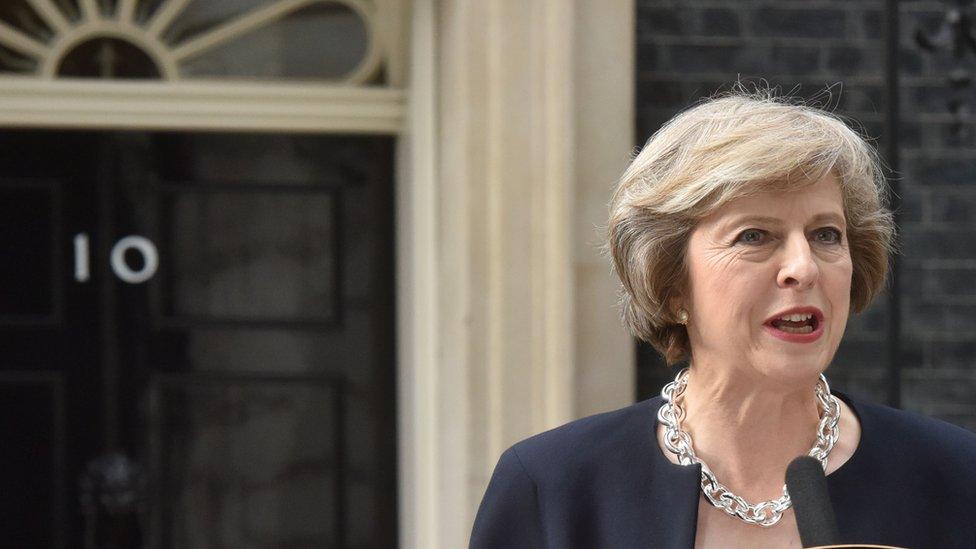
Theresa May become the UK's prime minister on Wednesday evening

What leading Conservatives have been saying about Scotland's place in Europe
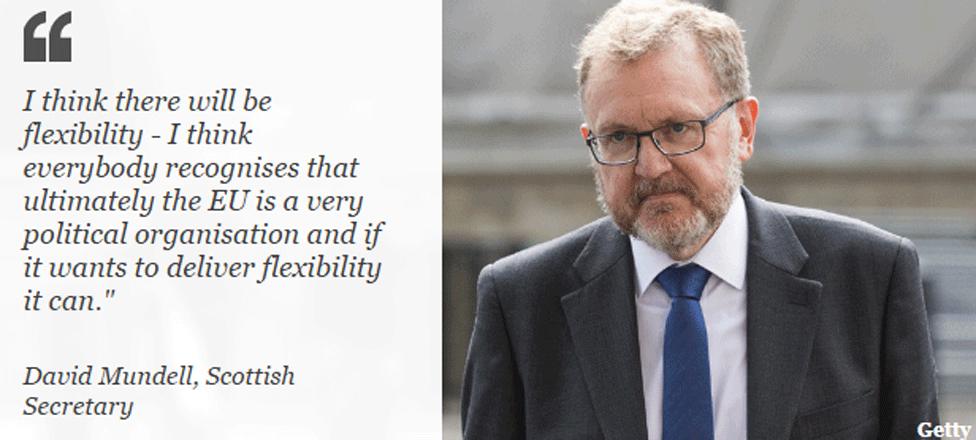
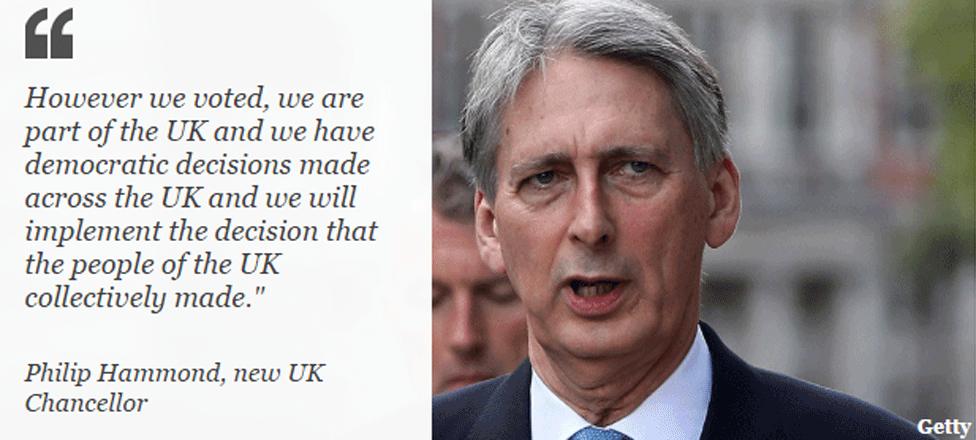
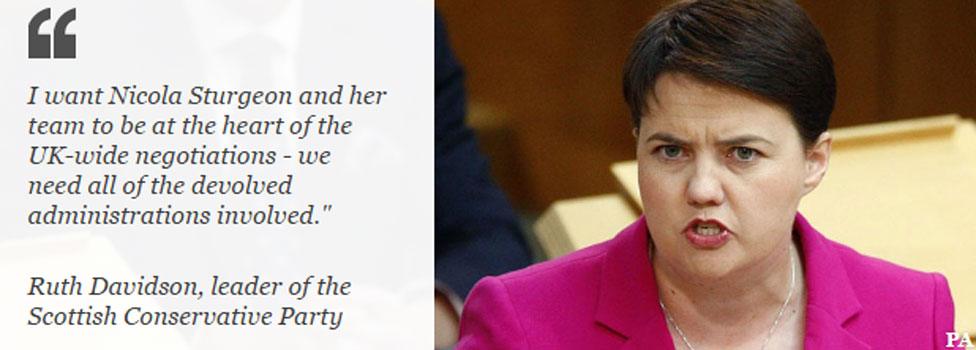
- Published13 July 2016